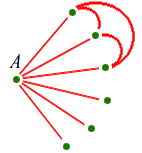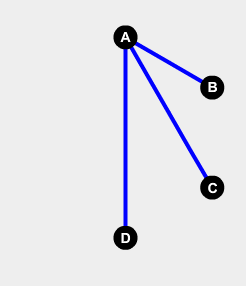Theorem on Friends and Strangers; Why in Any Party of Six People, Either at Least Three of Them Are Mutual Friends, or at Least Three of Them Are Mutual Strangers
Por um escritor misterioso
Descrição
Let’s take a look at Alice first. To her, each one of the other five (Bob, Carol, Dave, Ellen, and Frank) is either a friend or a stranger. Suppose Bob, Dave, and Frank are friends to Alice, and…

Solved Show that in a group of five people (where any two

Solved 28. Show that in a group of five people (where any

An Interesting Ramsey Theory Riddle

Party Problem The simplest example of Ramsey theory. It is also known as the 'Maximum Clique Problem'. A clique of a graph is a complete sub graph of the. - ppt download

The Friendship Theorem - You Always Have 3 Friends Or 3 Strangers At A Party
How to prove: at a party of six people either there are three mutual acquaintances or there are three mutual strangers - Quora

Friends and strangers

Ramsey's Theorem: Friends and Strangers

Correlation, Causation, and Ramsey Theory

Theorem on Friends and Strangers. Ramsey Theory and Graham's Number, by Francesco Di Lallo

How Math Puzzles Help You Plan the Perfect Party
de
por adulto (o preço varia de acordo com o tamanho do grupo)







